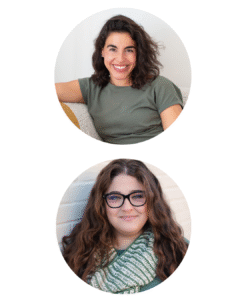When Family and Loved Ones Are Part of Eating Disorder Treatment

Children and Adolescent Eating Disorder Treatment: Healing Through Family Understanding & Care
Eating disorders often create a deep sense of isolation—not only for the individual struggling but also for the people who care about them. That’s why we approach adolescent eating disorder recovery as a shared process. Family involvement isn’t just encouraged—it’s integral.
For children and teens, we often incorporate Family-Based Treatment (FBT)—a compassionate, evidence-based approach that empowers caregivers to take an active, healing role in their child’s recovery process. We partner closely with parents or guardians to ensure they feel supported, informed, and capable of guiding their child through recovery with both confidence and care.
We offer individualized parent coaching sessions, designed to:
- Clarify your child’s emotional and nutritional needs
- Equip you with practical tools for structured meal support
- Teach you how to set boundaries that are both firm and empathetic
- Support you in responding effectively to disordered eating behaviors
When caregivers feel confident in their role and better equipped to support their child through recovery, their child feels safe, seen, and supported.
Adult Eating Disorder Treatment: Inviting Trusted Support
Adults navigating eating disorder treatment benefit deeply from community and connection. While the path may look different than for adolescents, the need for meaningful, attuned support remains essential.
Whether it’s a partner, roommate, friend, or family member, we’ll help you identify and engage the people in your life who can show up in ways that are truly helpful.
This might include:
- Creating a home environment that feels safe and nourishing
- Offering gentle accountability during meals or high-stress times
- Understanding how to respond to urges or eating disorder thoughts
- Simply being present during moments of overwhelm or uncertainty
We honor your autonomy while helping your support system learn how to participate in your healing in a way that feels empowering—not intrusive.

Recovery Happens in Real Life: Accountability & Connection
Psychotherapy and nutrition counseling are powerful, but recovery happens in real life—at home, at the table, in social situations, and during the in-between moments when your providers aren’t in the room. That’s why building a recovery network is essential.
We’ll work with you to:
- Identify and strengthen your personal support network
- Educate loved ones on how to provide trauma-informed, recovery-affirming care
- Develop personalized strategies for support between sessions
It’s not about surveillance—it’s about accountability, connection, and creating a web of care that’s strong enough to catch you if you stumble.

Finding Community: The Role of Eating Disorder Support Groups
If you don’t have a strong support system in your life, don’t worry—your psychotherapist or dietitian can connect you with eating disorder support groups, both in-person and online, where you can find community, validation, and understanding from others who truly “get it.”
These groups offer:
- A judgment-free space to share your story
- Practical tips for managing day-to-day recovery challenges
- A sense of belonging and collective support
Connection is a powerful antidote to the isolation that eating disorders often create.
Your Village of Support – You’re Not Alone in Your Recovery
Eating disorder treatment should never feel like a solo mission. You deserve a comprehensive, compassionate care team that includes not just skilled professionals, but also the people who walk beside you in daily life.
When we say it takes a village, we mean it. And we’re here to help you build a trusted circle of support around you that supports your needs, respects your autonomy, and makes recovery not just possible—but sustainable.
At Coastal Collaborative Care and Fueling for Recovery, we specialize in this integrative, person-centered approach. If you or a loved one are navigating the challenges of an eating disorder, reach out. We’re here to provide compassionate, coordinated care in Virginia and other states—because recovery isn’t a solo journey. It truly takes a village.
Click here to read part 1 of our blog.
Written By:
Annyck Besso, MSc. RD, Founder of Fueling for Recovery
Gabrielle Katz, LCSW, CEDS-C Owner of Coastal Collaborative Care
Coastal Collaborative Contact info:
coastalcollaborativecare.com
admin@coastalcollaborativecare.com
(571) 249-5332
































